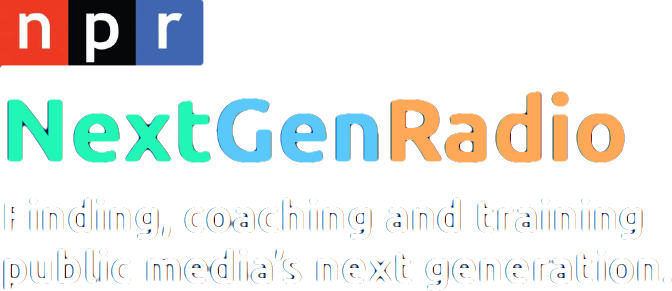
The impact of climate change
We are finding, coaching and training public media’s next generation. This #nprnextgenradio project is created in Oregon, where five talented reporters are participating in a week-long state-of-the-art training program.
In this project we are highlighting the experiences of people whose lives are being affected by climate change.
Alejandra Silva Hernández speaks with Dr. Genoveva O’Neill, a family physician in Vancouver, Washington. O’Neill tells us how she’s seeing an increase in adverse health effects due to climate change. Hotter temperatures and hazardous wildfire smoke have only exacerbated heat stroke, breathing problems and other illnesses among vulnerable populations that she treats at her clinic, specifically in the Latinx community.
Illustration by Eejoon Choi
This Vancouver doctor wants to raise awareness about climate change impacts on health in communities of color
Two years ago during record wildfires in the Pacific Northwest, a longtime patient of Dr. Genoveva O’Neill hesitated going to her doctor’s appointment as wildfire smoke filled the air. An elderly Black woman with limited access to transportation, she already had complications with breathing due to chronic obstructive pulmonary disease, or COPD. She was afraid of going outside, so she canceled her appointment. But that delay in care made her condition worsen, and she ended up in the hospital.
COPD is just one of the many underlying conditions that can be exacerbated by wildfire smoke caused by climate change. O’Neill wants to make that connection for her patients in Vancouver: she’s seeing higher incidences of pulmonary disease, cardiovascular disorders, heart attacks, and strokes. And it’s not just physical ailments: mental health illnesses like depression, anxiety and post-traumatic stress disorders can arise. Washington and Oregon are already among the top states with the highest prevalence of mental health illness.
A DOSE OF AWARENESS ABOUT CLIMATE CHANGE
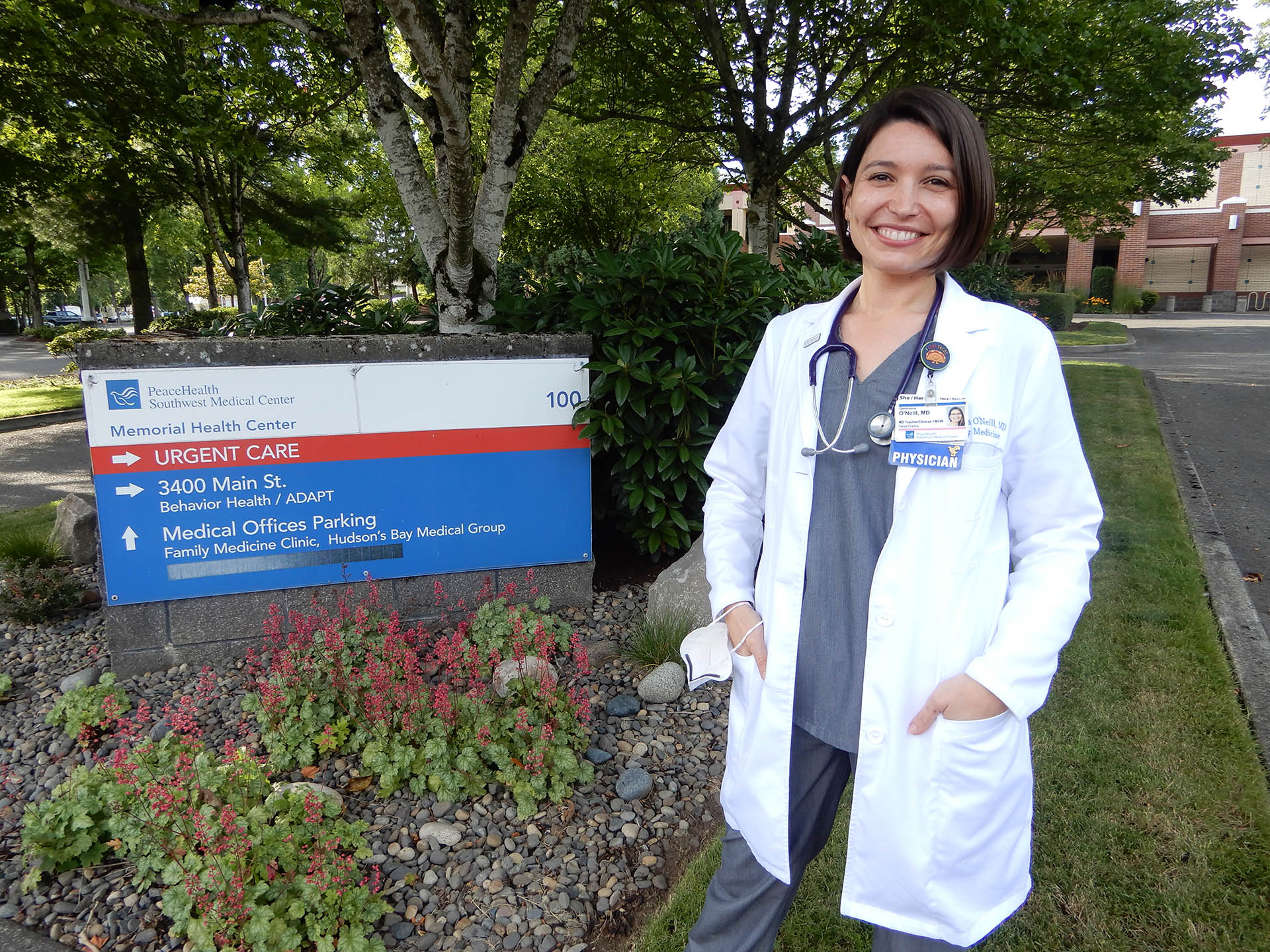
Dr. Genoveva O’Neill, a family medicine doctor, stands in front of a sign for PeaceHealth Family Medicine of Southwest Washington in Vancouver. Here she cares for patients of all ages. (Photo Credit: Donald Orr)
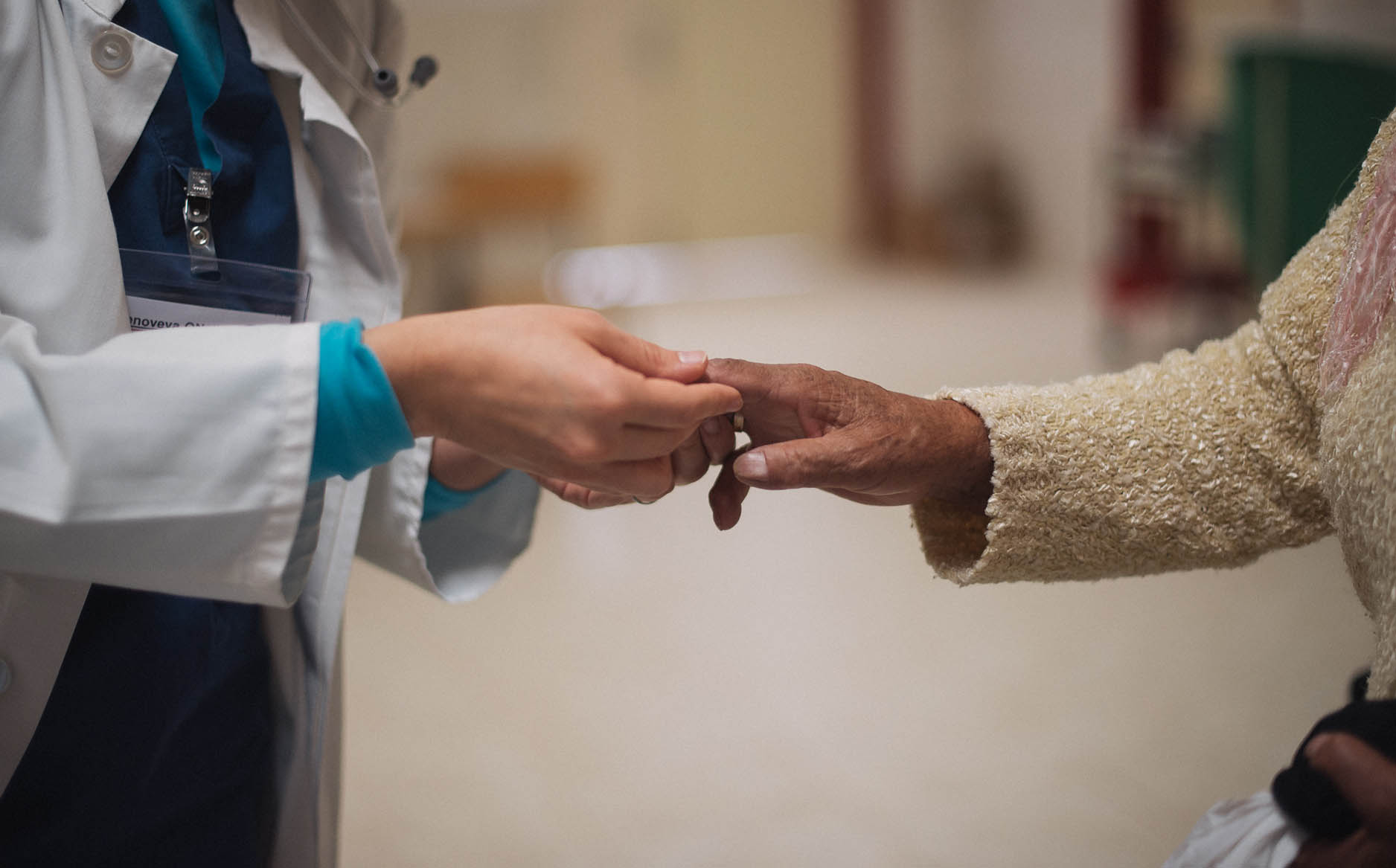
O’Neill examines a patient’s hand during a medical trip to Peru. Back home in Vancouver, Washington, O’Neill treats patients of all ages and backgrounds – but she is already seeing the adverse effects of climate change within the Latinx community. Some are especially vulnerable to the health consequences of scorchingly hotter days and hazardous wildfire smoke, as many Latinx workers in agriculture and construction work outside. (Photo Credit: Ryan Morigeau)
O’Neill is already seeing the adverse effects of climate change among her patients, including patients in the Latinx community. Some are especially vulnerable to the health consequences of scorchingly hotter days and hazardous wildfire smoke, from working long days outside.
“Because [Latinx community members] are more likely to work in industries that require outdoor work – agriculture, manufacturing, construction – we see a lot more of the health effects of changing climate: hotter heat waves, longer droughts, wildfires,” O’Neill said.
According to a 2021 NPR/Columbia investigation, workers of color are dying at a higher rate than white workers. Since 2010, a third of heat-related fatalities have occurred among Latinx farmworkers, even though they make up only 17% of the US workforce.
O’Neill says she’s also seeing more climate-related breathing problems among infants.
“[We’re] seeing a lot more kids developing things like asthma and breathing problems at a very early age – we’re talking three to six months, having them need to be on long-term medications at rates that we previously hadn’t seen,” O’Neill said. Older children are being affected too – one 12 year old patient now needs an EpiPen after experiencing a new life-threatening allergic reaction.
It can get more complicated when parents don’t speak English. As newer symptoms arise due to wildfire smoke O’Neill spends extra time to make sure that caregivers and parents feel comfortable administering life-saving medication, like an Epipen, to their kids.
O’Neill deeply believes in the power of using the data and research already available to acknowledge the health impacts of climate change. She’s worried not just for her patients, but her own family too.
“I worry about my children, not only immediate effects to their breathing, but what kind of world are we handing over to them?” O’Neill said. “If we can make a change now, it’s still going to, down the road, make a difference for the world we’re going to leave for our kids.”
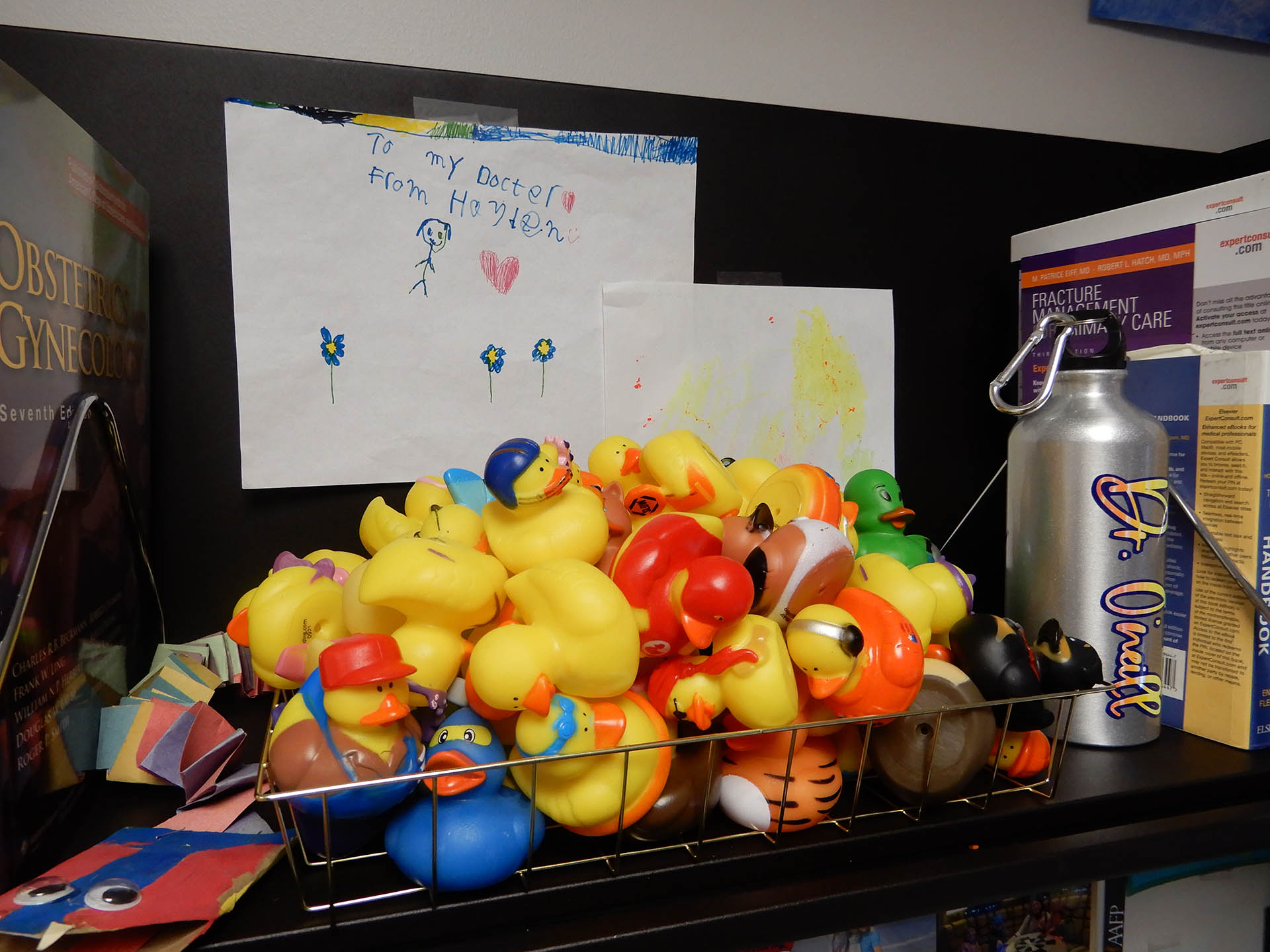
O’Neill has a large tray of rubber duckies in her office for her youngest patients. She gives them toys when they receive their shots. (Photo Credit: Donald Orr)
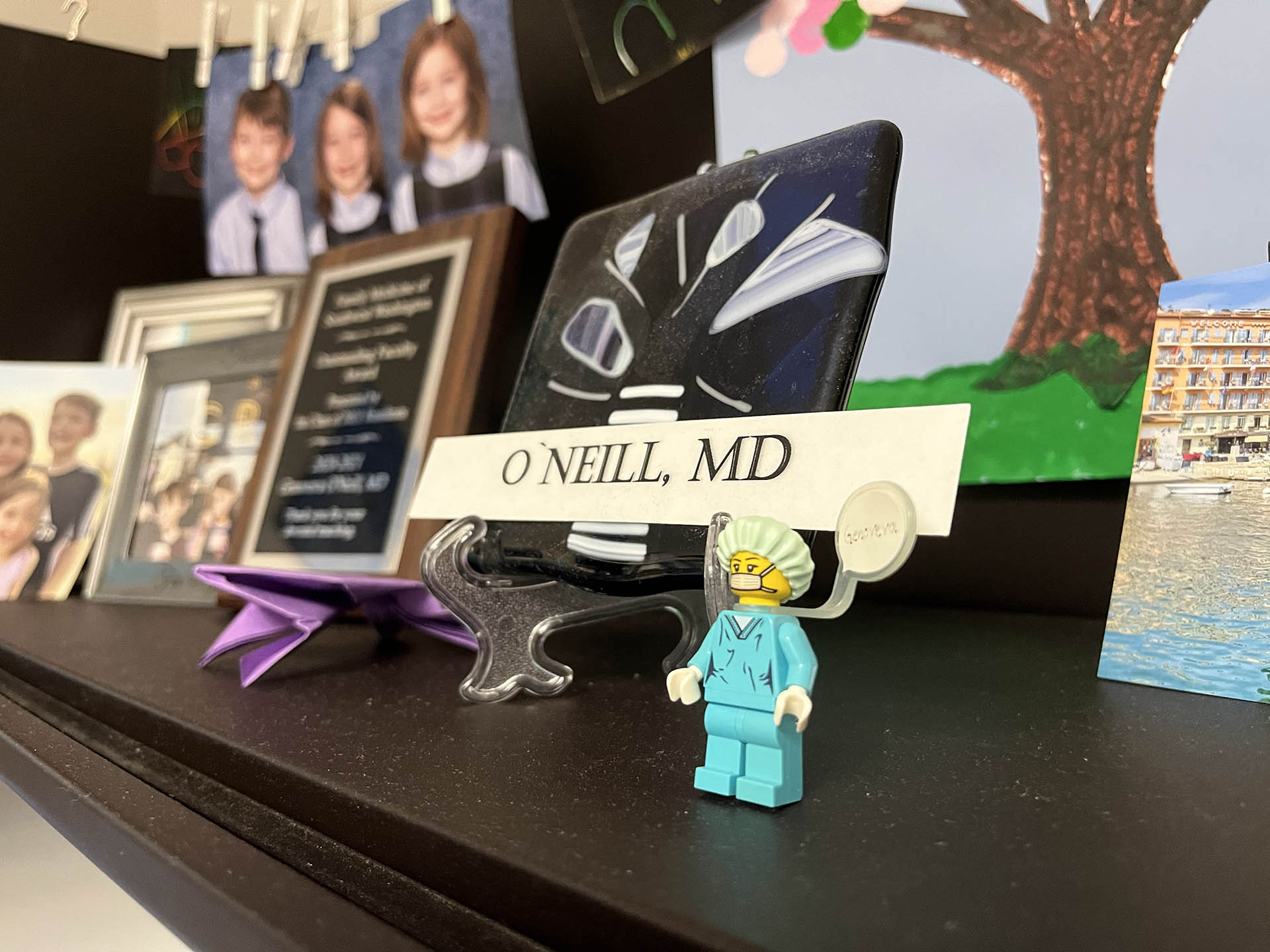
O’Neill displays a Lego minifigure of a female medical doctor on her desk with family photos of her children in the background. Her mother-in-law gave her the figure of herself as a gift after she graduated from medical school. (Photo Credit: Donald Orr)
Audio Transcript
Dr. Genoveva O’Neill
We are at Family Medicine Southwest Washington. We’re an outpatient family medicine clinic in residency for PeaceHealth.
My name is Genoveva Ollervides O’Neill, and I am a family medicine physician.
[Sound of clinic sliding doors opening]
So right this way…
[Sound of unlocking door]
So we serve a population that’s about 90% Medicaid and Medicare. And so we get to experience life with them, and from the really low lows to the very high highs. And it’s very fun and fulfilling.
We see a lot more health effects of changing climate, hotter heat waves, longer droughts, wildfires. And then long-term detriment to health in terms of higher incidences of pulmonary disease, cardiovascular disorders, heart attacks, and strokes – and mental health disorders, including depression, anxiety, post-traumatic stress disorder.
In terms of climate change, one of the biggest kind of effects that it has in the Latinx community, is because they’re more likely to work in industries that require outdoor work, agriculture, manufacturing, construction…seeking care to begin with is a challenge because you work during the weekdays when we are open.
And a lot of the time, that’s not an option to not work. It’s just not possible. Those are kind of the biggest things that really limit access apart from cost, which is prohibitive at time, and very, very much a burden in today’s society, especially with minorities.
For example, I have a longtime patient of mine, a Black woman who has very limited access to transportation. And so when we had the wildfire seasons two years ago, she was deeply affected. She didn’t have transportation to go take her to the doctor. And she didn’t want to, honestly, because of the fear that going out is just gonna make me feel worse. Unfortunately she has underlying COPD and complicated breathing issues. Not being able to seek out this care and having a complication of so much smoke in the atmosphere then made her COPD worse. Ended up not seeking care, ended up going to the hospital, staying a prolonged time there; this could have been a less severe outcome.
Some of the things that we see in clinic is, lately seeing a lot more of kids developing things like asthma and breathing problems at a very early age – we’re talking three to six months. And having them need to be on long-term medications at rates that we previously hadn’t seen.
I wanna make sure that the parents or the caregivers understand how to use what they need to use to keep this person healthy.
I am a big proponent of education.
I worry about my children, not only immediate effects to their breathing and what that’s gonna look like, but what kind of world are we handing over to them?
If we can make a change now, and try to leave this place better than how we found it. It’s still going to, down the road, make a difference for the world we’re gonna leave for our kids.